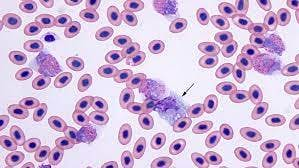The impact of artificial intelligence assessment on diabetic retinopathy

Summary: Researchers from the University of Rwanda studied the recent advances in computer-based analysis using artificial intelligence (AI), which present a promising opportunity to test and refine automatic grading of diabetic retinal images for screening. Using validated AI algorithms instead of scarce trained specialists, this could potentially increase the efficiency and accessibility of screening programs. Systematic reviews of deep learning-based algorithms in DR screening have highlighted such advantages as reduction in demands for manpower, cost of screening, and intragrader and intergrader variability.
Research: The growing burden of diabetes and its associated complications is increasing the demands on health care systems, particularly in low-resource countries. Their hypothesis was that adherence to referral services would be higher among patients randomized to receive AI-supported screening with immediate feedback compared with those randomized to receive delayed communication of results until after human grading was completed. Evidence from real-life screening programs is limited, and no evidence exists on community acceptance of the use of AI-supported DR screening.
Findings: Immediate feedback on referral status based on AI-supported screening was associated with statistically significantly higher referral adherence compared with delayed communications of results from human graders. These results provide evidence for an important benefit of AI screening in promoting adherence to prescribed treatment for diabetic eye care in sub-Saharan Africa.
How Labelbox was used: All images, anonymized with a unique patient registration number, were uploaded to Orbis International’s Cybersight AI. A mobile device or laptop and an internet connection are required to access Cybersight AI, which generates a response regarding the presence or absence of referable DR based on a macula-centered image from each available eye of a participant within 60 seconds. Afterwards, all images were uploaded to Labelbox for annotation and grading by a United Kingdom National Health System formally trained retinal specialist.
You can read the full PDF here.

 All posts
All posts

